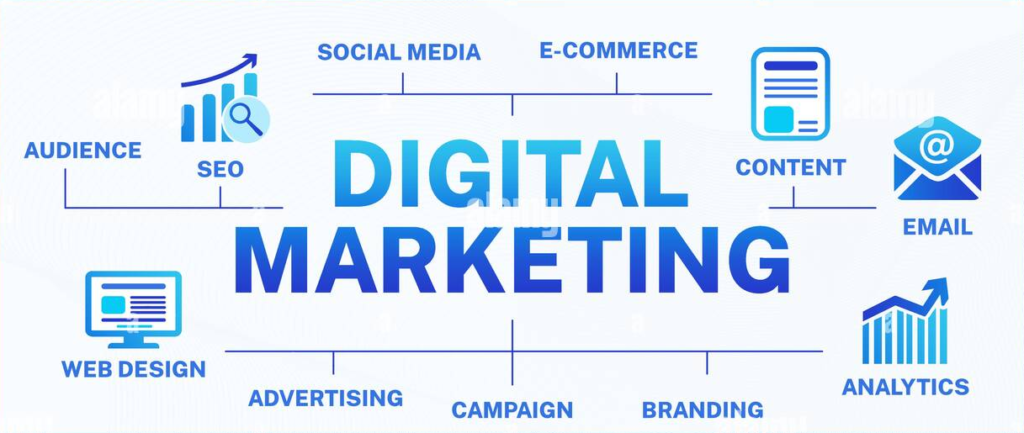Digital marketing is crucial for e-commerce businesses in 2025 because it drives online visibility, customer engagement, and revenue growth in an increasingly competitive and digital-first world. Here are some key reasons why it’s more important than ever:

1. Increased Online Shopping Trends
- Consumers are relying more on online shopping due to convenience and a broader range of products.
- Global e-commerce sales are projected to keep growing, making digital marketing essential for reaching new audiences.
2. Personalized Customer Experiences
- Digital marketing allows businesses to offer personalized experiences using data analytics, AI, and machine learning.
- Customized product recommendations, targeted promotions, and personalized emails enhance customer satisfaction and loyalty.
3. Omnichannel Marketing
- Consumers engage with brands across multiple touchpoints—websites, social media, email, and mobile apps.
- An effective digital marketing strategy ensures a seamless and consistent experience across all platforms, increasing customer retention.
4. SEO and Search Visibility
- With millions of e-commerce sites competing, optimizing for search engines is vital for visibility.
- Effective SEO strategies improve organic traffic, which reduces reliance on paid ads while enhancing long-term growth.
5. Social Media Influence
- Social commerce (shopping directly on social media platforms) is growing rapidly.
- Platforms like Instagram, TikTok, and Facebook allow businesses to showcase products, engage with customers, and drive direct sales.
6. Data-Driven Decision Making
- Digital marketing tools provide real-time insights into customer behavior, sales patterns, and campaign performance.
- E-commerce businesses can use this data to optimize strategies, improve ROI, and predict future trends.

7. Cost-Effective Advertising
- Digital marketing offers cost-effective advertising methods like pay-per-click (PPC), influencer marketing, and retargeting.
- Compared to traditional advertising, these strategies provide better targeting, performance tracking, and flexibility.
8. Enhanced Customer Engagement
- Email marketing, chatbots, and personalized content keep customers engaged before and after purchase.
- Strong engagement fosters customer loyalty and increases the likelihood of repeat purchases.
9. Global Reach
- Digital marketing breaks geographical barriers, allowing e-commerce businesses to reach international customers.
- With the right strategy, even small businesses can scale globally without significant infrastructure investments.
10. Staying Competitive
- As technology evolves, competitors are investing in advanced digital marketing tactics.
- To remain competitive, e-commerce businesses must adopt innovative marketing approaches such as voice search optimization, video marketing, and AI-driven campaigns.


